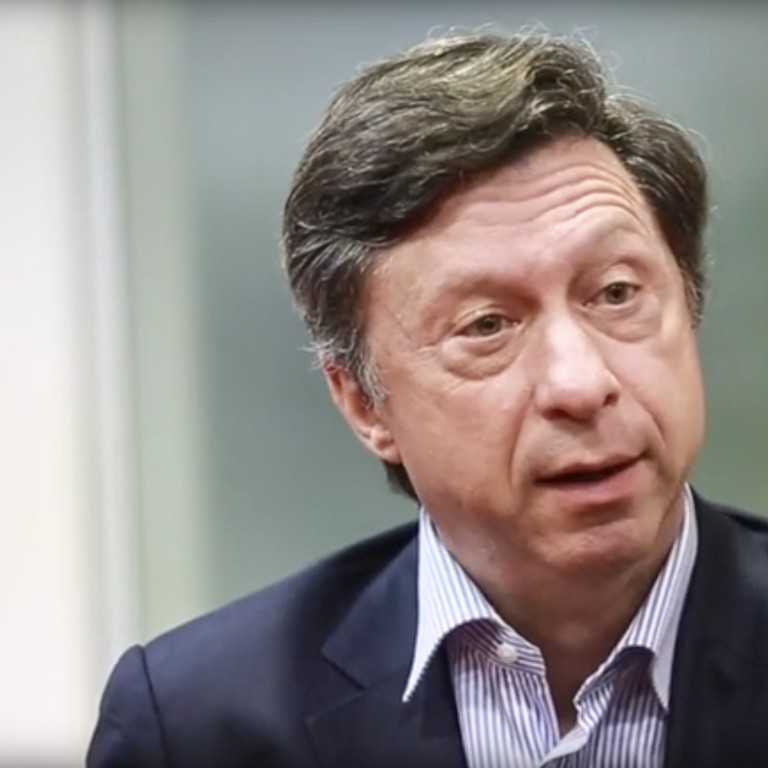
Could China and the United States do a deal to end the trade war before summer? China expert and former US diplomat says ‘yes’
- Andy Rothman thinks domestic issues on both sides lead to increased motivation to make an agreement
- Rothman was head of macroeconomics and domestic policy at the US Embassy in Beijing.
A former US diplomat and China strategist has added his voice to the growing chorus of experts who believe a short-term resolution to the trade war can be reached within months.
Andy Rothman, who spent 17 years in the US foreign service focused on China and is now an investment strategist, said a deal could be struck by the summer, with domestic issues leading to increased motivation on both sides to make an agreement.
Rothman was head of macroeconomics and domestic policy office of the US embassy in Beijing. In the 1990s, he was involved in US efforts to negotiate China’s accession to the World Trade Organisation. He expects the current negotiating deadline of March 1 to be extended.
Why the US-China dispute is about so much more than a trade imbalance
“Now that a negotiation is seriously under way, there is no reason for the US to go back and put more tariffs in place, as long as progress is being made towards a deal,” he said. “It is rare that a trade negotiation gets finished on time and President [Donald] Trump can extend the deadline.”
Zoellick said that such a deal would be “transactional” and implied that it would not address long-term structural issues in the Chinese economy.
Rothman said that some significant changes could be achieved within months, which might pave the way for a more substantial deal further down the line.
In Hong Kong this week, he said a deal might include better market access for American companies in China; better protection of intellectual property (IP) rights; and an agreement by Beijing to stop requiring American companies to transfer technologies to their Chinese partners.
Rothman, who now works for investment company Matthews Asia, which has US$27.4 billion in assets under management, suggested that these changes would also benefit the Chinese economy.
For one, better market access for foreign companies would likely improve the competitiveness of Chinese firms, he said.
“China’s WTO accession led to foreign competition, which in turn helped Chinese companies become more efficient and innovative,” Rothman said.
He recalled that the period of WTO negotiations that led to China’s accession in 2001 resulted in foreign companies like General Motors selling more cars in China than in the US. Yet GM’s success also strengthened China’s automotive industry, as Chinese carmakers subsequently improved their own models.
Rothman also claimed that China’s economy suffered because of IP theft, with many Chinese companies stealing from each other. This has prevented China from developing strong software, music, film and pharmaceutical sectors.
Accusations of technology theft by China are not new. Rothman recalled that former US president Barack Obama raised a similar issue with his Chinese counterpart Xi Jinping in 2015.
Obama said he and Xi reached a “common understanding” on curbing economic cyber espionage, with the two leaders agreeing that neither government would knowingly support cyber theft of corporate secrets or business information. The agreement stopped short of any promise to refrain from government-to-government cyber spying for intelligence purposes.
However, the Trump administration says there has been renewed Chinese hacking over the past two years.
Rothman said that since Xi had agreed to end state-sponsored espionage attacks on US corporate secrets, it should be relatively straightforward for him to resume that deal with Trump – especially since China is also facing pressure from other nations to change its behaviour.
China ‘has taken the gloves off’ in its theft of US technology secrets
“Xi understands this is not just an American problem. German companies do not like this and Japanese companies do not like this. In the end this is not a sustainable way for Chinese companies to grow,” he said.
Eliminating such hurdles would set the framework for the longer-term US-China relationship, Rothman said.

